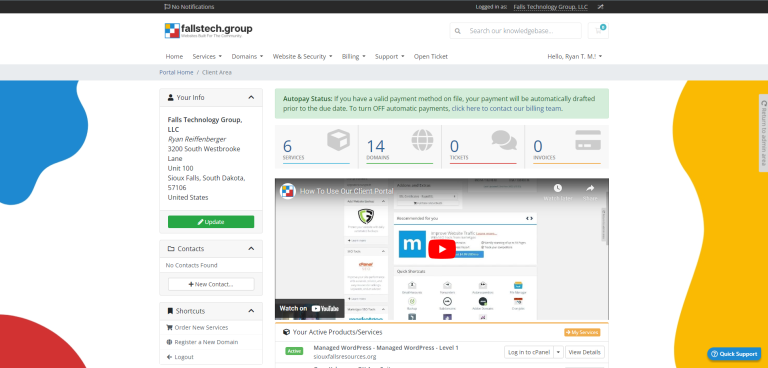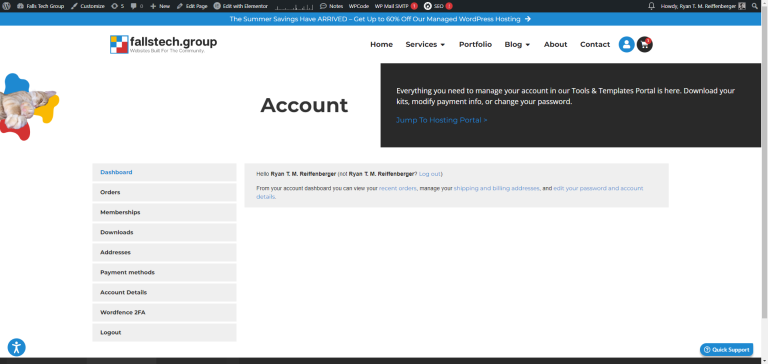This article is part of a multi-part series. We recommend starting from the beginning to get the most comprehensive overview of WordPress. To do so, click here.
Welcome back to another installment of How to Build With WordPress. In this series, we are taking a dive into the many parts of the machine that IS the WordPress engine. In this particular segment, we’ll be talking about WordPress Plugins.
So What Is A WordPress Plugin?
Plugins, by nature, are components that you add to your WordPress installation that are designed to change or enhance the WordPress website experience. A plugin can perform simple functions like generating shortcodes to a range of complicated functions like running an eCommerce store, managing a Membership Database, or even powering the back end of a custom built application. There are thousands of plugins available on the WordPress marketplace, and even more available for download from 3rd party sources.
Often times, we run into cases where users are unsure of which plugins specifically they need for their website. By default, WordPress comes with a couple of different plugins installed depending on where you are hosting. The Plugin Hello Dolly is a good example of a plugin that comes with every install of WordPress. (WP Beginner has an article here about what it is, and why you should delete it.)
While plugins can be a very powerful resource for your site, they can also open your website up to a myriad of different vulnerabilities if not properly monitored and updated.
What Plugins Do I Need For My Site?
To first determine what plugins you need for your website, you will want to determine what purpose you want your website to serve. Some plugins will work better with others, so it is important to be mindful of what primary purpose you want your website to serve. For instance, if you want to build an eCommerce platform you will want to be sure you select a security plugin that’s properly built to support eCommerce traffic.
Step 1: Determine What Kind of Site You Have
When building websites, we’ve come to the conclusion that there are a few common categories that websites fall into. Each of these categories has specific requirements, and have special considerations for what kinds of plugin configurations you may want to have.
Increase WordPress Performance For FREE With These Tips!
Sign up for our FREE email series and improve your website load speeds!
E-Commerce Websites
Online shopping websites or ‘E-Commerce’ websites typically have special requirements when it comes to handling customer information. From privacy policy requirements to PCI and Payment Processing compliance, is it imperative that the configuration for these websites is set up appropriately to avoid legal risk to the business associated. It is important to handle customer information properly and responsibly when processing transactions online, and in best practice, all the time.
The primary components that you would likely install in these cases would be:
- An E-Commerce Plugin like WooCommerce
- A Security Plugin like CleanTalk Security
- A Page Builder plugin like Beaver Builder
In these build cases, you would want to avoid competing plugins that could cause configuration issues between the two. For instance, you wouldn’t want to install WooCommerce along side of a different E-Commerce platform, or CleanTalk Security alongside a similar Security Tool.
In addition to properly configuring your plugins, it may be mindful to note that you will want to set up a payment processor that will not require you to store payment information directly to your website to help minimize risk.
Membership Websites
This is another example of a website that will house customer data. More often than not, a membership website will actually hold more information about individual users than a standard E-Commerce site will. While payment information may not be stored directly, it is still worth considering that the other information that could be found on this site is just as valuable.
To build a website like this, you will need:
- A Membership Plugin like Ultimate Member
- A Security Plugin like CleanTalk Security
- A Page Builder plugin like Beaver Builder
Blogging Websites
Blogging websites are usually much simpler in nature, and require far less plugins when working in WordPress. By nature, WordPress is a blogging platform, which includes the functionality by default as the base feature.
To build a website like this, we recommend:
- A Security Plugin like CleanTalk Security
- A Page Builder plugin like Beaver Builder
Step 2: Plugin Selection
Selecting the plugins that you will use is the second-hardest part of the process, but altogether isn’t that difficult all things considered. When selecting plugins, remember all of the items we talked about before in terms of compatibility. You want to make sure that you’re not doubling up on any features.
There is no perfect plugin, and no perfect plugin developer, but there are some key indicators you can look for when installing plugins for your website:
- Number of Active Installs – This will give you an indication of how large the user base is for a plugin. If the number is high (Upwards of 100k+ installs), you can bet that the plugin is professionally maintained, and receives frequent updates as it is used by a large number of sites. If this number is low, it can be an indicator of a plugin that may not be maintained any longer, or receives infrequent updates (or worse has broken or missing features).
- Plugin Publisher – This isn’t 100% something that will give you an indication right away, but you can keep an eye out for familiar names in this space. If you’re working with a specific vendor, this can be a good indicator that you’re selecting the appropriate plugin that you may be looking for.
Step 3: Plugin Testing
By this stage, you should have picked out your plugins and have them installed/activated before you can proceed. In order to test if plugins work together, the easiest way is to simply start trying to build your site with them. As you run into issues, you can refer to the plugin documentations that are made available in most cases, and in many instances there are already fixes or settings in place to correct these problems. If not, this may be a case where going back and reviewing your plugin list may be worth your time.
Conclusion
Plugins can be the most powerful part of your website, or the most dangerous part of your website – all depending on how you use them. There’s something we like to remind people when thinking about installing plugins: Install the fewest plugins to accomplish your goal as possible – this will minimize your risk for security breaches that may occur with plugins.
There’s no perfect recipe of plugins for any one website, so don’t get super hung up on which ones you can select, but be sure you’re not putting your website at risk by doing so.






